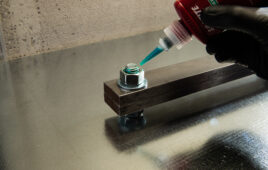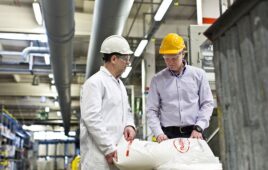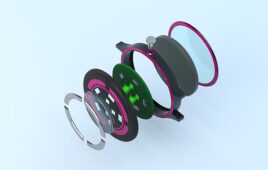Custom injection molding manufacturer Amerimold Technology Inc. was making a next-generation industrial thermo-controller when it encountered an overmolding problem. The company identified the main production issue as a result of an existing material’s inability to bond to the front cover of the product’s overmolded polycarbonate chassis, cover, and push button keypad.

Amerimold’s customer specified using a self-bonding material for the component. That material did not overmold to the polycarbonate without pre-treatment. This required additional equipment and costs. Moreover, the client obtained the material from an overseas supplier, which, after testing, resulted in too much waste in rejected parts and a 60% scrap rate. Another alternative would have required the purchase of additional variable frequency light pumping (VFLP) equipment to improve and engage the surface substrate bonds at the cost of $17,000.
Faced with investing in nearly $70,000 on tooling for the two-cavity liquid silicone rubber (LSR) mold, Amerimold considered adding more equipment to resolve the production, pre-treating, and waste problems.
However, before taking that step, Amerimold asked Shin-Etsu Silicones to send a five-gal sample of their KE2090-40 LIMS product to test with the LSR mold. The company conducted three to four tests on the two-stage molding system using the material without pre-treating the substrate. The KE2090-40 parts passed the test. In fact, the sample run was successful on the first shot, creating a perfect bond with no UV light treatment required and no rejects.
According to Shin-Etsu, KE2090 Select-Hesive LIMS series provide for fast cure and good bonding to various engineering thermoplastics that can withstand high heat, humidity, and thermal cycling.
Shin-Etsu Silicones of America
www.shinetsusilicones.com
::Design World::





Tell Us What You Think!